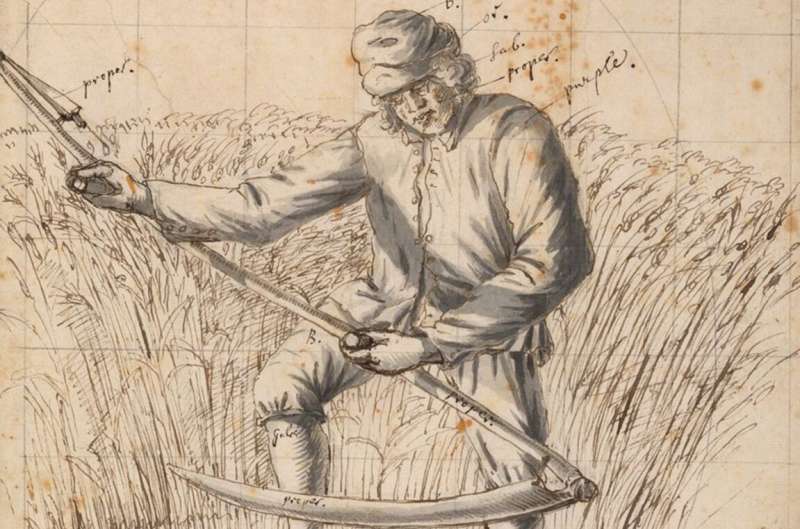Have you ever considered the profound reflections lurking beneath the hum of a lawnmower? This unique exploration of lawnmower poetry reveals how British poets have turned an everyday task into a canvas for emotional and philosophical inquiry. It’s a heartwarming journey through nature, nostalgia, and the delicate dance of life and death.

According to recent research, British poets have been weaving a fascinating “lawnmower poetry microgenre” over the last fifty years, delving into themes like childhood, masculinity, and even mortality. This poetic tradition can be traced back to Andrew Marvell, a 17th-century poet who used the act of mowing—specifically with a scythe—to comment on the tumultuous backdrop of the English Civil War.
Francesca Gardner, a scholar at Cambridge University, emphasizes that poetry about mowing might seem whimsical at first glance, but it serves as a rich medium for examining our connections to both nature and each other. “As Marvell illustrated after the Civil War, modern poets have continued to reflect on their highs and lows through the simple act of mowing,” she notes.
In one of Marvell’s pivotal works, he describes a mower who inadvertently kills a bird nestled in the grass. Through vivid imagery, he captures the stark juxtaposition of beauty and destruction, urging us to confront the broader cycles of life—seasons, warfare, and the relentless march of time.

Decades later, poet Philip Larkin echoed this sentiment, depicting a rather unsettling experience of mowing that involved a hedgehog tragically caught in his motorized machine. Through “The Mower,” Larkin captures not only the brutality of the act but also a deeper sense of unease borne from our interaction with nature. Gardner points out the surprising parallels between Larkin and Marvell, suggesting their shared poetic lens has sparked a conversation that’s as relevant today as it was centuries ago.
Many of these poems reveal an intriguing duality—where the act of mowing signifies control and victory over nature, yet also invites reflections on the fragility of life. In a poignant elegy, Andrew Motion penned a tribute to his father, rooted in memories of afternoons spent mowing the lawn. Conversely, Michael Laskey’s work explores themes of paternal neglect, where the father’s obsession with perfect lines overshadows genuine familial joy.

“Mowing a lawn often symbolizes a victory over nature,” Gardner comments. “Yet, these poems reveal a growing awareness that such victories may be hollow, as they often neglect the colorful chaos of life that exists beyond the neatly trimmed grass.”
Gardner’s own favorite entry into this lawnmower poetry realm is Mark Waldron’s touching 2017 piece, “I wish I loved lawnmowers.” This work candidly tackles themes of alienation and addiction, ultimately questioning what it means to truly connect with ourselves and our surroundings. The poem illustrates a yearning for love and belonging—an echo of the feelings that drive us to create.
As we ponder the underlying meanings of lawnmowers and the poetry they inspire, it becomes clear that these humble machines invite us to reflect on our own lives. Francesca Gardner encapsulates it beautifully: “Lawnmowers draw people to poetry as much as poetry draws people to lawnmowers.”
In a world increasingly challenged by uncertainty, the lessons hidden in these poems remain ever-relevant. As Larkin eloquently put it during the COVID-19 pandemic, “We should be kind / While there is still time.” A gentle reminder, whether we find ourselves in the garden or elsewhere in life.
More information:
Francesca Gardner, Lawnmower Poetry and the Poetry of Lawnmowers, Critical Quarterly (2025).
If you would like to see similar science posts like this, click here & share this article with your friends!





